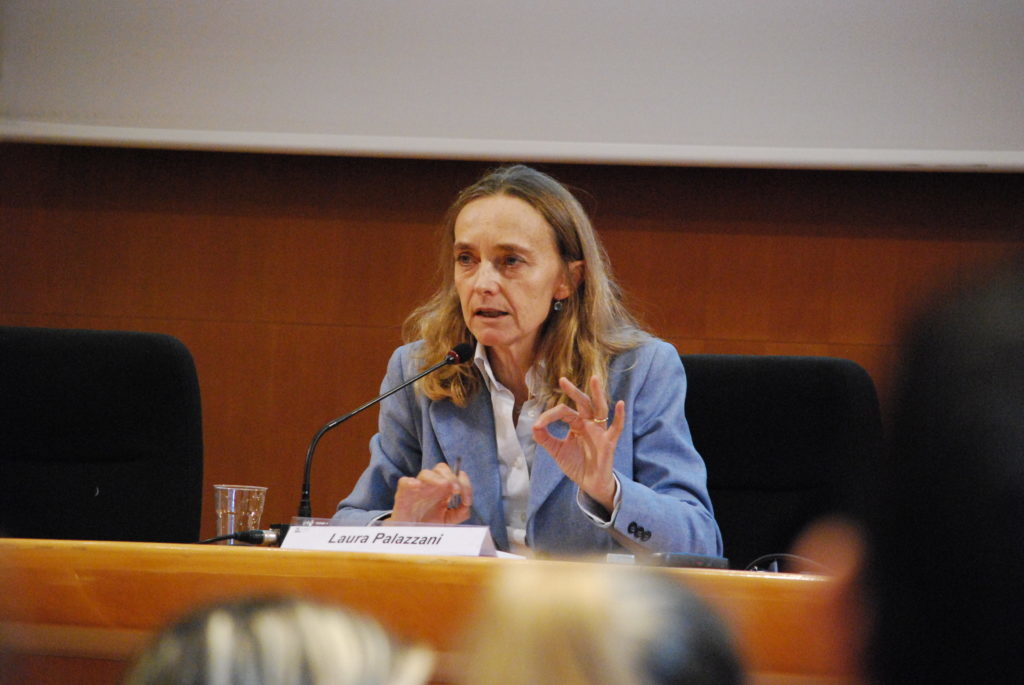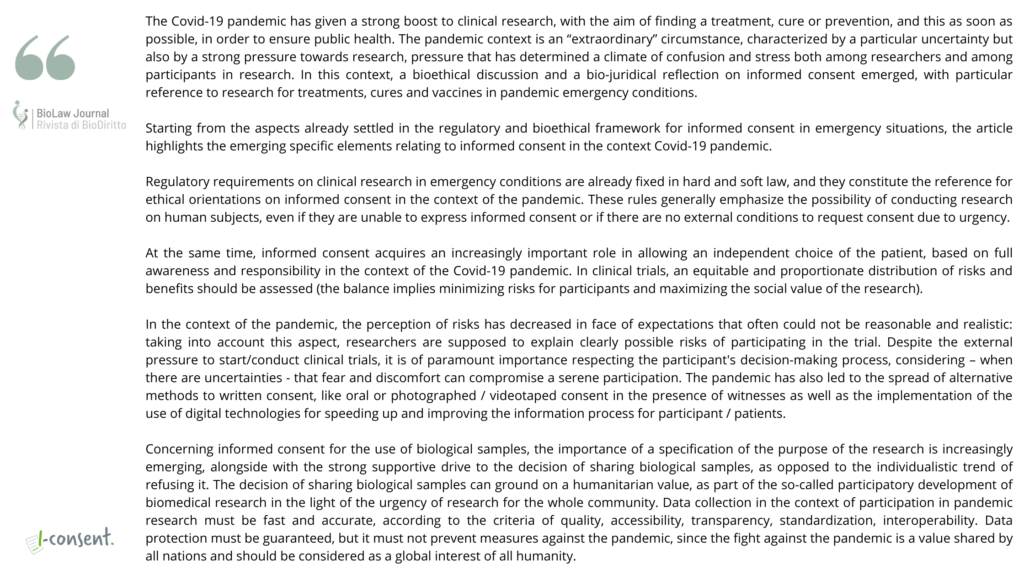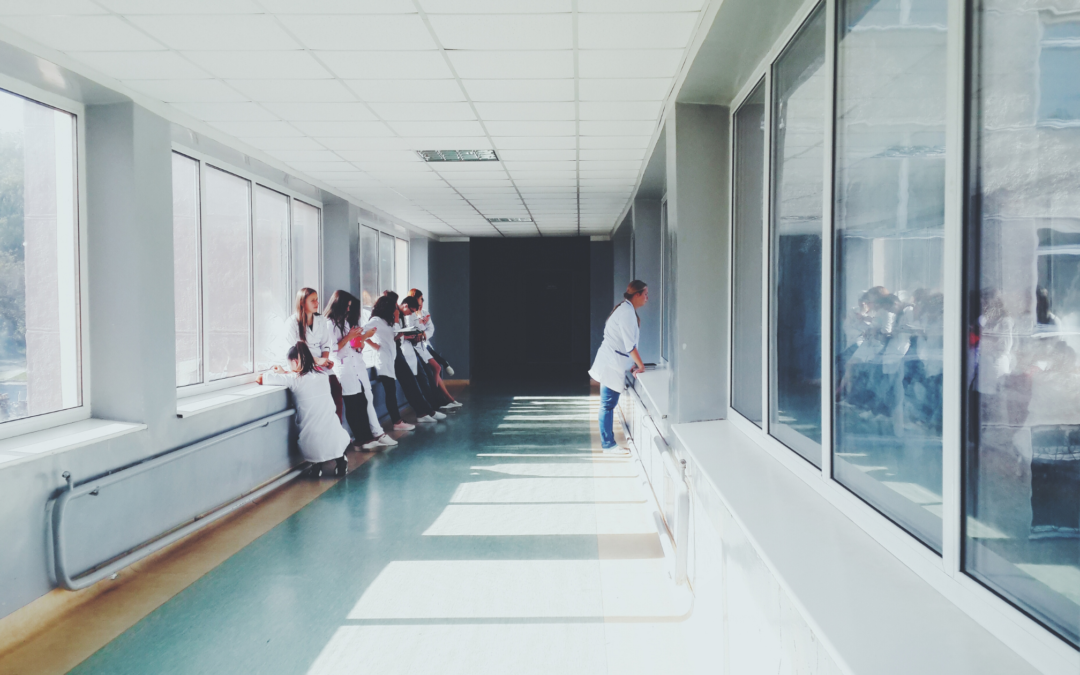Project publishes an article describing informed consent in biomedical research in the pandemic context in the Journal of BioLaw: Rivista di Biodiritto
Clinical research is world widely speeding in order to identify as soon as possible COVID-19 treatment and vaccine. Clinical trials are key to this global impacting objective. Informed consent process is crucial to the goal of promoting patients’ and volunteers’ autonomy grounded on full awareness and responsibility in the context of the COVID-19 pandemic.
Which are the requirements for informed consent in an emergency setting such as that of a pandemic? Does the need to rush in order to find treatments and vaccines against COVID-19 challenge informed consent? Is it possible to fasten research, always guaranteeing patients’ and volunteers’ safety?

The article by Laura Palazzani examines the transformations and declinations of informed consent in the context of the COVID-19 pandemic, analyzing the bioethical discussion and in particular international and national documents with bioethical and biolegal relevance, both of institutional bodies and bioethics committees. Particularly, informed consent is analyzed in the context of experimentation of treatments and vaccines, and in relation to the use of biological samples and the processing of personal data.
Laura Palazzani is full professor of Philosophy of Law at LUMSA University (Rome); vice president of the Italian Committee for Bioethics; member of the European Group on Ethics and New Technologies (EGE) at the European Commission; member of the Committee on Bioethics – Council of Europe (DH-BIO) and member of the UNESCO International Bioethics Committee. She is the director of the i-CONSENT unit based in LUMSA – Rome.
Although the text is in Italian, access the full version here, find an abstract in English here:

